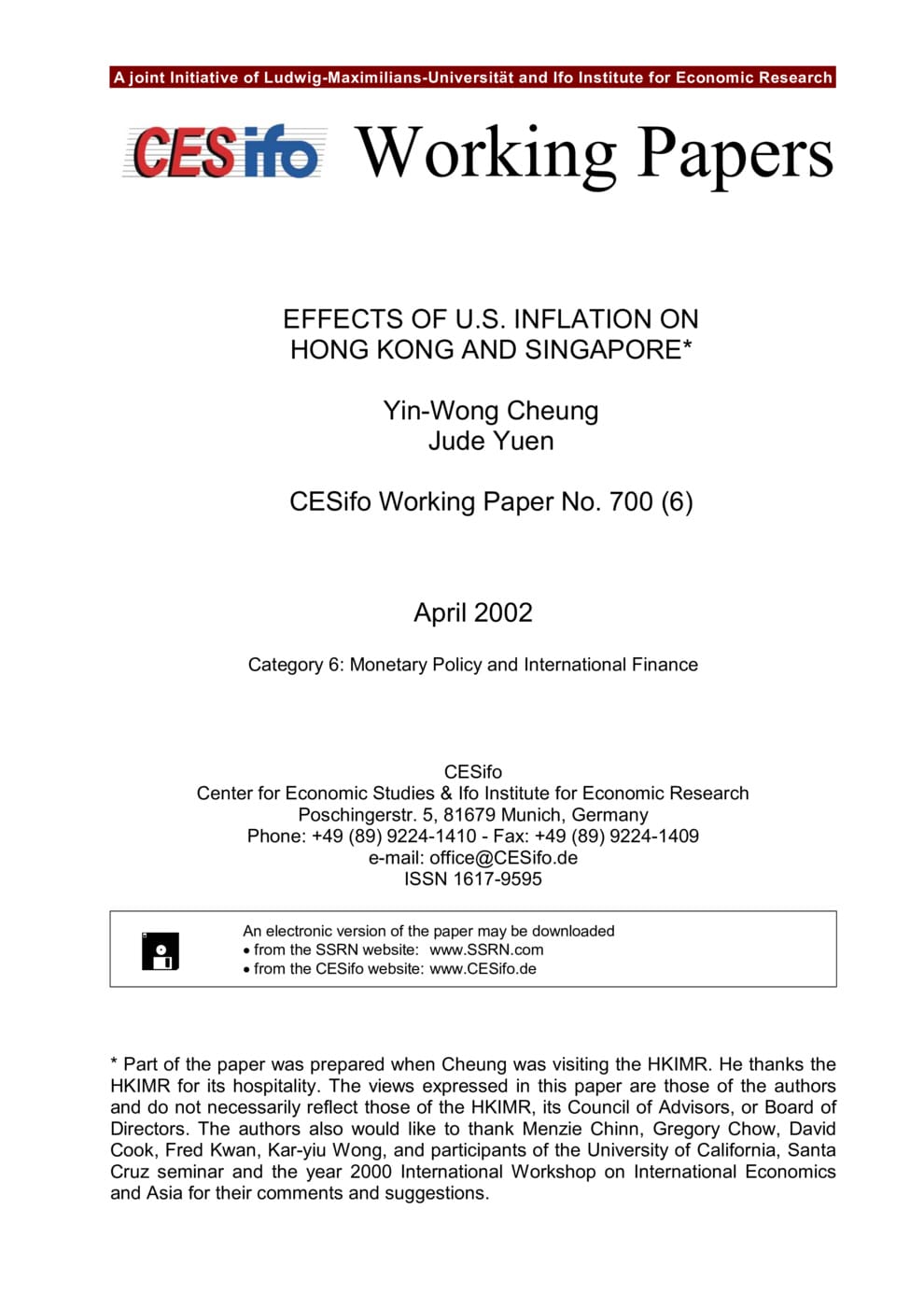Effects of U.S. Inflation on Hong Kong and Singapore
CESifo, Munich, 2002
CESifo Working Paper No. 700

Standard economic models predict that the choice of an exchange rate regime has important implications for the interdependency of national monetary policies, which is sometimes measured by the degree of inflation transmission across borders. In this paper, we examine how inflation rates in two small open economies, namely Hong Kong and Singapore, interact with those in the U.S. It is found that the price levels in these three economies are cointegrated. Thus, a vector error correction model is used to study the inflation dynamics. It is found that Hong Kong and Singapore inflation rates, but not the U.S. one, respond to the error correction term. Compared with Singapore, the Hong Kong inflation rate is more responsive to U.S. price shocks. The different responses to U.S. price shocks are consistent with the difference in exchange rate regimes adopted by the two economies.